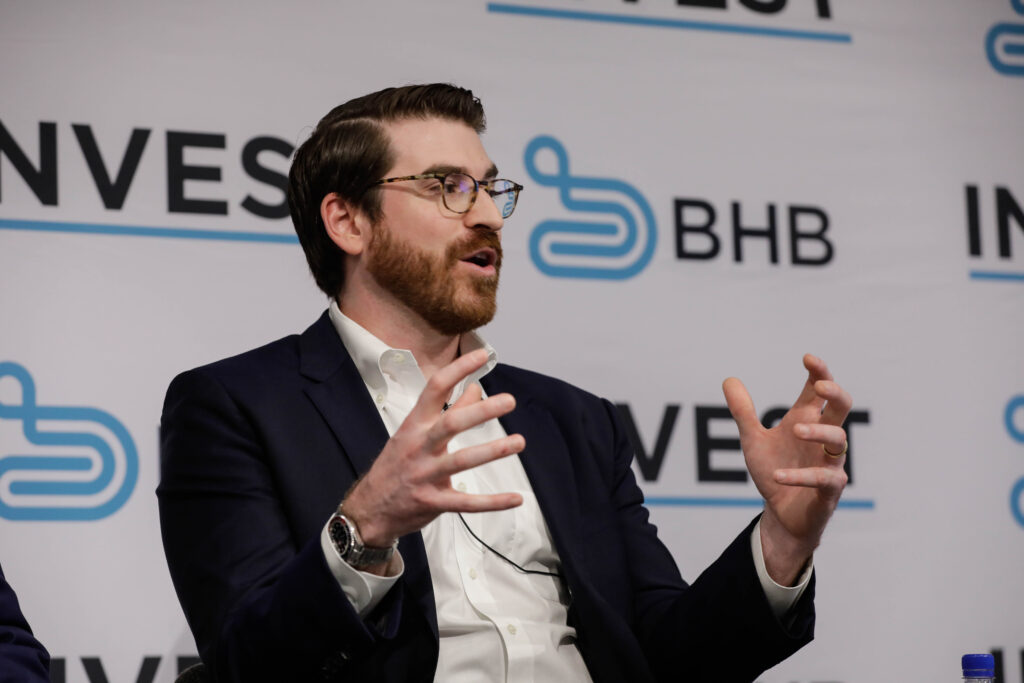The current financial climate may mean fewer mega deals in behavioral health next year.
But investors will likely continue to have a healthy appetite for smaller transactions, industry insiders believe.
“I think that buyers will get more selective, but I think the demand is still [there],” Kevin Taggart, managing partner at Mertz Taggart, said during Behavioral Health Business’ INVEST. “We still see a tremendous amount of demand every time we take a company to market, so I think that equation still keeps them at least flat. I don’t think they’re going to go up.”
Founded in 2006, Mertz Taggart is a Fort Myers, Florida-based health care mergers and acquisitions firm that has completed more than 100 transactions since its start, according to its website.
The behavioral health M&A market has slowed since 2021’s blockbuster year. In 2021, there were 158 deals in the behavioral health space. Meanwhile, there were only 70 deals in the first half of 2022, according to Mertz Taggart data.
“[The] pressure in the market, it’s obviously going to have an impact on transactions, but the world … I play in is predominantly in the transaction value of between $10 million and $100 million,” Christal Contini, chair of the M&A practice group at McDonald Hopkins LLC, said at INVEST. “So for that space, I have not actually seen a slowdown.”
“It’s as busy as it was six to 12 months ago,” Contini continued.
Founded in 1930, McDonald Hopkins is a 150-attorney law firm with 50 service and industry teams. It has offices in Ohio, Michigan, Florida, Maryland and Illinois.
While 2021 was a banner year for lenders, banks are also now tightening their belt going into a bear market. That means borrowers may have to temper expectations going into 2023, which could lead to acquirers scaling down the size of deals.
“This year, leveraged loan volume is down 50%, refinancings are down 75% on dividend deals, and our dividend recaps are down 92%,” Morris Estes, managing director at Capital One Healthcare, said during the event. “A lot of lenders are really taking a step back, being very cautious about how they deploy their capital.”
In the current environment, there’s “probably room for incremental term loans and smaller deals to get done,” Estes noted. But even in those cases, it’s going to be tough for mega deals to get done while the secondary market has traded down so low, he added.
Virginia-based Capital One Healthcare is a medical investment bank.
Investors look at outpatient, digital services
While deals in the behavioral health sector have been down overall, there has been an uptick in deals in the mental health subsector. There have been 43 mental health transactions in the first half of the year, compared to 25 in the first half of 2021, according to Mertz Taggart data.
Outpatient mental health, in particular, has seen some large deals this year. One of the biggest acquisitions of the year was UnitedHealth Group (NYSE: UNH) health services division Optum’s purchase of outpatient mental health provider Refresh.
“We’re keeping much busier with outpatient mental health,” Taggart said. “ I think it is because of the Refreshes and the LifeStances of the world that there’s been a lot of groups trying to roll those up. And so we’ve seen that in our practice as well.”
Investors are continuing to watch digital behavioral health providers.
But questions about the long-term direction of the industry still loom.
“I think it just brings a lot of risks. And don’t get me wrong, there’s a lot of successful companies doing very well. And I think there’s a need for virtual services,” Rush Brady, AVP of development at Odyssey Behavioral Health, said at INVEST. “We’re just not sure with the acuity of our clients that it’s an effective sort of standalone platform.”
Behavioral health provider Odyssey Behavioral Health operates 12 residential treatment centers and 19 outpatient locations. It was founded in 2015 and offers psychiatry, eating disorder treatment and outpatient services.

An example of the long-term direction of the industry is its go-to employment model.
Many digital providers use a 1099 contract model, instead of employing full-time clinicians. This can come with a lot of compliance and billing challenges, according to Contini.
But making the change from contractors to full time employees can cut into profits.
“So then a buyer comes in and now they are thinking, ‘Okay, what do I need to do in order to make this business successful into the future?’ And the buyer starts thinking, ‘Well, maybe I need to actually make them all employees just so that I can have the policies in place.’” Potentially, the cost goes up, so that cuts into your EBITDA, at least the way the buyer is looking at it on their numbers.”
Additionally, many clinicians like the freedom of being 1099 employees. Shifting the workforce to a full-time model could end up leading to retention issues down the road.
“So it is a bit of a catch 22,” Contini said.

